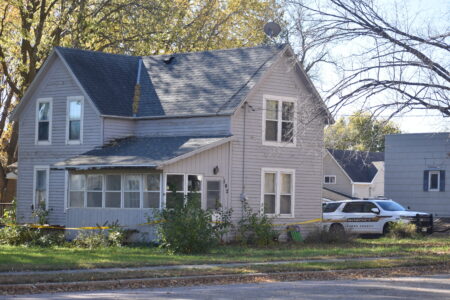Oak Hills board voices concerns over ‘Big Beautiful Bill’
Medicaid cuts ‘will be devastating’
On Tuesday, the U.S. Senate narrowly passed President Donald Trump’s “One Big Beautiful Bill.” This bill has now moved to the U.S. House for approval.
Since the budget bill was first unveiled, there have been concerns it would result in significant cuts to Medicaid. Recently, the operating Board members of Oak Hills Living Center in New Ulm have voiced similar concerns. In a recent letter to the editor, the board urged the public to contact representatives and oppose the budget bill due to Medicaid cuts that could harm rural nursing homes, such as Oak Hills.
“We operate on a small amount of resources,” Oak Hills Board member Carolyn Varland said. “If these cuts happen, it will be devastating.”
The Senate version of the bill cuts $930 billion over the decade for Medicaid, Medicare, and the Affordable Care Act, according to the Congressional Budget Office. The Oak Hills board was specifically concerned about provisions to “providers taxes.” Provider taxes are designed to fund state Medicaid programs, with the federal government matching the state’s spending. States use federal money generated through taxes to pay health institutes like Oak Hills. The proposed budget bill would cap and gradually reduce this tax. The concern is without this funding stream, rural healthcare facilities would need to reduce services, or close entirely.
Varland worried that with these cuts, Oak Hills could see a drop in the quality of service which would impact the quality of life for patients. Varland said when she first joined the Oak Hills board, it was important to her they provided high-quality care.
“I was a nurse for 47 years,” she said. “In my years working in the emergency room and surgical services, I saw a lot of patients from nursing homes. It makes a big difference on the quality of care and how the residents feel if they have a good place to be.”
She said as small nursing homes are forced to close, families are forced to move loved ones far from home, away from support structures.
“A big element in nursing homes is loneliness and depression,” Varland said. “The more you have people around them that they feel comfortable with, it increases quality of life.
The problems go beyond nursing homes. Board member Dr. Ann Vogel said cuts to Medicaid could hurt rural hospitals as well. Without coverage, some patients will avoid seeking care until they end up in an emergency room. This does not mean they can pay. The hospitals will end up absorbing that cost.
One of the arguments for the cuts to Medicaid is it is designed to eliminate waste and fraud. Varland and Vogel argued there were better ways to tackle fraud and find financial efficiency.
Varland said if patients are discharged from the hospital but have no one to care for them, the odds of them getting injuries and returning to the hospital were great increasing overall cost.
“The efficiency comes from how to stop that,” Varland said, “Not just cutting $930 billion for Medicaid.”
Vogel added that with new technology and data collection, the government should be able to find cost overages and better allocate staff without making huge cuts to the budget.
Varland said she is not against eliminating waste and fraud from Medicaid, but argues the government needed to take more time, rather than make quick cuts to the bottom line.
“This needs to be one of the things that shouldn’t be political,” she said. “We are talking about people’s lives.”
Debate on the federal budget bill began Wednesday in the House. President Trump has imposed a July 4 deadline to pass the bill.





